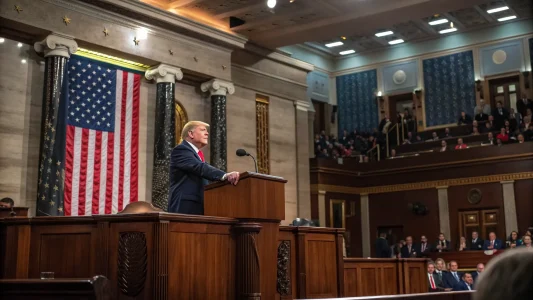Nancy Pelosi’s fortune is drawing fresh attention to how members of Congress build wealth while shaping policy. The former House Speaker, a dominant figure in Democratic politics, is estimated to be worth more than $278 million. The estimate has revived questions about lawmakers’ investments, disclosure rules, and whether elected officials should trade individual stocks at all.
“Former Speaker of the House Nancy Pelosi has an estimated net worth of more than $278 million, thanks to her investments in lucrative technology stocks, real estate, and her years in Congress. Here’s how Pelosi made her millions.”
Table of Contents
ToggleWealth Estimate And Sources
Pelosi’s finances, like those of other federal lawmakers, are reported through annual disclosure forms. Those filings show assets and liabilities in broad ranges rather than exact amounts. That makes any dollar figure an estimate, sometimes a wide one.
Her wealth is tied to a mix of assets. The largest buckets include technology stocks, real estate holdings, and investments accumulated across her long tenure in public life. Much of the trading activity has been associated with her husband, Paul Pelosi, a longtime investor.
Pelosi has said she follows disclosure laws and does not direct her spouse’s trades. Her office has repeatedly stated that she does not own or trade individual stocks in her own name.
How Congressional Disclosures Work
Congress adopted the STOCK Act in 2012. The law bans insider trading by lawmakers and requires faster reporting of stock trades. Members must file periodic transaction reports for trades above a threshold within 45 days.
Annual disclosures list assets in ranges, such as $100,001 to $250,000. Net worth estimates add up midpoints or endpoints of those ranges. That method introduces uncertainty and fuels debate over the actual size of any lawmaker’s fortune.
- Annual reports show ranges for assets and debts.
- Trades above set amounts must be reported within 45 days.
- Penalties apply for late reports, though fines are often small.
Stock Trading Debate Heats Up
Pelosi’s portfolio has become shorthand for a larger fight over ethics in Congress. Critics argue that trading individual stocks risks conflicts of interest. They say lawmakers can influence industries through hearings, briefings, and legislation.
Supporters of a trading ban want members and spouses limited to broad funds, like index funds or U.S. Treasuries. They claim that it would reduce conflicts and rebuild public trust.
Opponents of a ban counter that lawmakers should manage personal finances like any citizen, provided they follow disclosure rules. They argue that blind trusts and strict reporting already protect the public interest.
Industry Exposure And Policy Influence
Technology shares feature heavily in many affluent portfolios, and Pelosi’s is no exception. That concentration mirrors market reality. Tech stocks have dominated index gains for years and often drive outsized returns.
Still, when leaders in Congress hold positions in sectors under active oversight, it raises fairness concerns. Even when no rule is broken, the optics can be poor. Ethics advocates say the appearance of a conflict can be as damaging as an actual one.
Real estate is another pillar of wealth for many lawmakers. Property values have surged over the last decade in several U.S. markets. That appreciation has amplified the gap between members and average households, who face high housing costs and stagnant savings.
What Experts Watch
Watchdogs track three signals. First, late or amended trade reports may point to compliance issues. Second, concentrated bets in industries under active committee review. Third, trading patterns that coincide with closed-door briefings or major policy moves.
None of these signals proves wrongdoing on its own. But they are the red flags that prompt closer review. The goal, ethics lawyers say, is not to criminalize investing. It is to prevent conflicts that erode confidence in government.
What Comes Next
Congress has debated stock-trading limits for years, but proposals have stalled. With public trust fragile and the market still volatile, pressure is rising for a clearer rulebook.
Pelosi’s wealth will keep driving headlines, but the core issue is bigger than one lawmaker. The next steps could include stricter deadlines, higher fines, or an outright ban on individual stock trades for members and spouses.
For voters, the test is simple: can the public see what lawmakers own, understand it quickly, and trust that votes are not influenced by portfolios? That answer will shape the next round of reform.
















